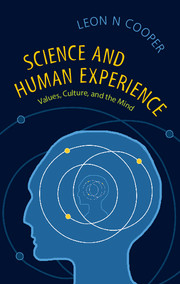Book contents
- Frontmatter
- Dedication
- Contents
- Preface
- Acknowledgement
- Part One Science and Society
- Part Two Thought and Consciousness
- Part Three On the Nature and Limits of Science
- 19 What Is a Good Theory?
- 20 Shall We Deconstruct Science?
- 21 Visible and Invisible in Physical Theory
- 22 Experience and Order
- 23 The Language of Physics: On the Role of Mathematics in Science
- 24 The Structure of Space
- 25 Superconductivity and Other Insoluble Problems
19 - What Is a Good Theory?
from Part Three - On the Nature and Limits of Science
Published online by Cambridge University Press: 05 November 2014
- Frontmatter
- Dedication
- Contents
- Preface
- Acknowledgement
- Part One Science and Society
- Part Two Thought and Consciousness
- Part Three On the Nature and Limits of Science
- 19 What Is a Good Theory?
- 20 Shall We Deconstruct Science?
- 21 Visible and Invisible in Physical Theory
- 22 Experience and Order
- 23 The Language of Physics: On the Role of Mathematics in Science
- 24 The Structure of Space
- 25 Superconductivity and Other Insoluble Problems
Summary
Is a correct theory necessarily a good theory? The strength of theoretical structures lies not so much in their correctness, but in how concrete they are as well as the precision with which questions can be formulated.
This essay is based on an excerpt from the paper “The BCM Theory of Synapse Modification at 30: Interaction of Theory with Experiment,” by Leon N Cooper and Mark F. Bear, originally published in Nature Reviews Neuroscience, in November 2012.
The usefulness of a theoretical structure lies in its concreteness and in the precision with which questions can be formulated. The more precise the questions, the easier it is to compare theoretical consequences with experience. An approach that has been very successful is to find the minimum number of assumptions that imply as logical consequences the qualitative features of the system that we are trying to describe. If we pose the question this way, it means that we agree to simplify. As Albert Einstein once said, “Make things as simple as possible, but no simpler”. Of course, there are risks, and it is here that science becomes as much art as logic. One risk is that we simplify too much and in the wrong way, that we leave out something essential. This is the intellectual risk. Another risk is political – that we may choose to ignore in the first approximation some facet that an important individual has spent a lifetime elucidating.
- Type
- Chapter
- Information
- Science and Human ExperienceValues, Culture, and the Mind, pp. 155 - 157Publisher: Cambridge University PressPrint publication year: 2014



